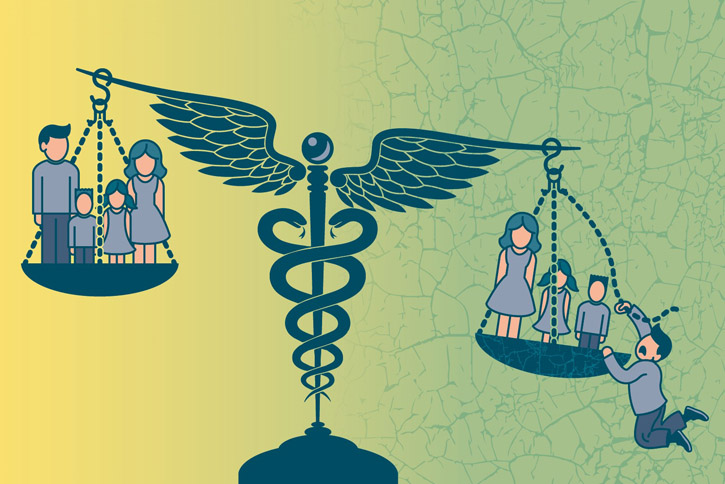
Illustration by Marcia Staimer
Employment, education, discrimination and insufficient housing are a few of the primary reasons for health inequalities in the United States, a panel that included a George Mason University professor recently concluded.
Alison Evans Cuellar, a professor of health administration and policy in George Mason’s College of Health and Human Services, was selected as a member of the 19-person Committee on Community-Based Solutions to Promote Health Equity in the United States.
The committee, formed by the National Academies of Sciences, Engineering and Medicine, released its findings earlier this year.

Alison Cuellar. Photo by Ron Aira.
Working on the committee has been a remarkable experience, said Cuellar, who was asked to serve largely because of her economics expertise and her federal and state health policy experience.
“It’s working with people with a lot of backgrounds: several hospital leaders, criminal justice experts, lawyers and political science experts … we were able to look at the issue through many lenses,” she said.
The committee defined health inequities as differences in opportunities among groups of individuals to achieve their best health, leading to unfair health outcomes.
“We found that higher incomes are leading to better health, but [saw] very little improvement [in health outcomes] in low-income communities,” she said.
Health equalities are a problem for everyone, not just those directly affected, according to the report, because business viability, national security and economic productivity are all impacted by them.
A total of nine drivers of health inequities were identified: employment, education, transportation, social environment, public safety, physical environment, income and wealth, health systems and services, and housing.
“This may sound surprising to some, but local communities can rally and have an important impact on these drivers,” Cuellar said.
Local communities can have a consequential impact on health equities. The panel studied nine communities that worked with their local residents on economic development, crime or education, and showed real promise in reducing health inequities.
